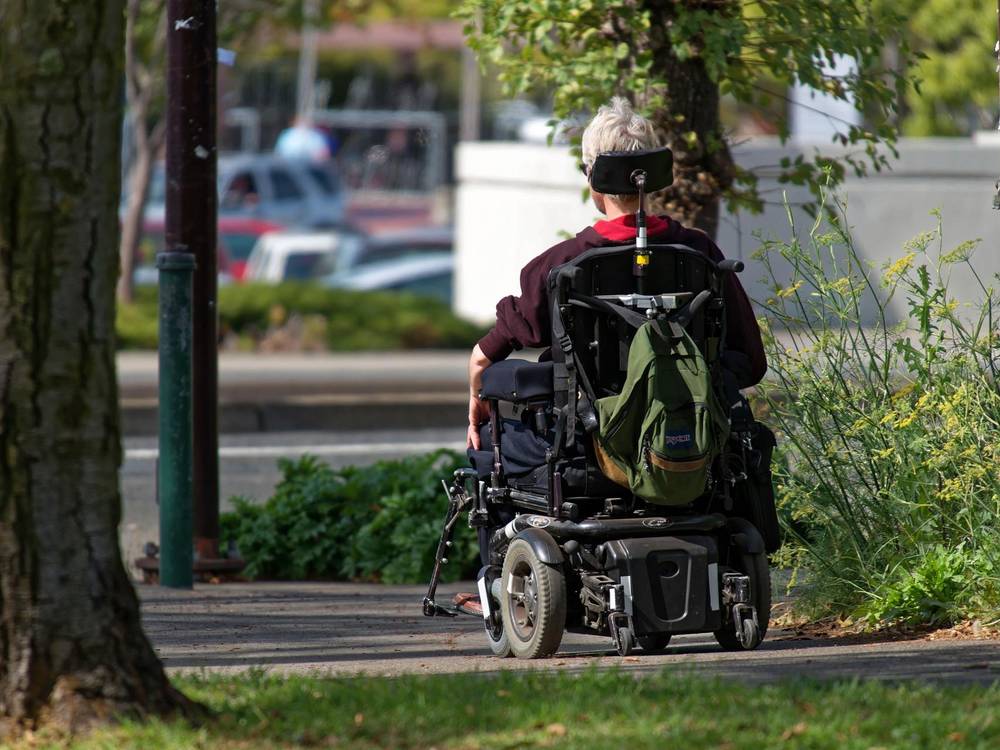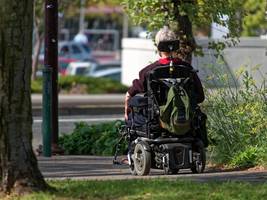On 19 January 2023, the Human Rights Ombudsman Peter Svetina presented some of the findings connected to the question of reassessment of eligibility for personal assistance at the 2nd meeting of the Commission for Petitions, Human Rights and Equal Opportunities, where the focus was on questions of personal assistance. He emphasised that he and his colleagues are also aware of other problems in this field, such as non-recognition of certain costs that occur while performing personal assistance, excessively long procedures on level two, and the decreased scope of the previously granted rights based on Article 9 of the Personal Assistance Act without the possibility of using legal remedies. Much agitation and many problems have also been caused by the app for the registration of working hours of personal assistants. At the meeting, the Ombudsman devoted particular attention to the reassessment of eligibility for personal assistance.
After having discussed numerous complaints in the last two years, he and his colleagues have found that decisions about the acknowledgement of these rights were not appropriately justified, which prevented persons from efficiently using legal remedies and hence the right to fair decision-making was interfered with. The Ministry of Labour, Family, Social Affairs and Equal Opportunities (MDDSZ) has been dealing with this question, as noted in the written response to the Ombudsman from 17 January. The Ombudsman also alerted the MDDSZ that the reassessment of eligibility for personal assistance can constitute an infringement of previously acquired rights and that deciding about the changed circumstances of beneficiaries can also be understood as a disguised interference with the rights. He also determined that procedures when performing the reassessment of eligibility for personal assistance were not clear. There was information about the suspicion that in individual cases grave abuses of the right to personal assistance had occurred. “We found that in none of the cases of alleged misuse (so far) has there been any action taken which is presumed by the regulations in such cases, i.e. the withdrawal of a right or even criminal prosecution,” said the Ombudsman at the Commission meeting.
“In 2021, we presented to the Ministry our position on the provision of Article 22a of the Personal Assistance Act and the reassessment of eligibility of a person for personal assistance. Even then, we warned against the risk that interference with the right of certain users could occur, since we did not find any legal basis for interference into the rights of individuals,” adds the Ombudsman, who also believes that the legal regulation, which defines the possibility of reassessment of final decisions, even in cases of various abuses in acquiring the right, is not questionable; however, such a reassessment must be previously presumed in law. “Such a reassessment is not stipulated in the Personal Assistance Act until the amendment enters into force, hence we at the Ombudsman’s institution do not consider those final decisions issued prior to the implementation of the amendment to conform with the provision of Article 158 of the Constitution of the Republic of Slovenia,” adds Ombudsman Svetina.
The Ombudsman believes that the reassessment of eligibility for personal assistance is just as disputable in cases when the beneficiary asks for an increase of the previously acknowledged scope of personal assistance due to the worsening of health and his or her scope is decreased due to the use of new criteria, even though the change (improvement) in health did not occur. The Ombudsman believes that the diminution of the previously acknowledged right to personal assistance can only be substantiated by the improvement of health. “Therefore, in such procedures care must also be taken to ensure that the rights of individuals whose health has worsened are not subjected to 'disguised' interference by performing a new assessment, according to new criteria which lead to a diminution in the scope of the right,” stressed Svetina at the Commission meeting. In the response to the Ombudsman’s proposals, the Ministry stated that, just like until now, reassessment procedures will always be performed when an individual asks for increased scope of the service. “The Ministry does not accept the Ombudsman’s proposals; however, we will not come to terms with this position,” the Ombudsman stands firm.
“We have also determined that the Ministry arbitrarily and possibly even discriminatorily made a special list, on which, according to the information studied, people who did not (only) have movement impairments were designated as persons entitled to reassessment, which means predominantly people with mental health disorders. “Despite searching for information as to how this list had been formed and which criteria were used, we did not manage to determine that,” said the Ombudsman. Another interesting fact detected was that the “load” of certain areas in Slovenia with the reassessment of eligible people was at least 30 times greater than in other areas. “In its response, the Ministry offered no commentary on this part of the Ombudsman’s findings,” underlined the Ombudsman.
The Ombudsman is pleased that in June of last year, the Ministry instructed centres for social work to stop all procedures of reassessment for eligibility to personal assistance according to the list: “As the Ombudsman I support this decision since no consequences occurred as a result. Nevertheless, I must warn that such an approach to the treatment of people whose life depends on the help of others is unacceptable and constitutes interference with human rights.“
“The idea of reassessment of eligibility was supposed to be instigated because of the unexpectedly high costs of providing personal assistance and suspicions that individuals with comparable needs receive significantly different scopes of the acknowledged right. The change of the law apparently gave rise to a comprehensive change in the comprehension of what personal assistance is and for whom and in what scope it is intended. This happened despite the fact that the provisions of the law defining this have not changed in any point. It also appears that different stakeholders have different answers to these questions,” stated the Ombudsman at the Commission meeting.
The Ombudsman calls on those responsible to urgently take a systematic approach to solving the question of what the content and purpose of personal assistance is according to the Personal Assistance Act and clearly handle this with an amendment to the act if this proves necessary. “Special attention needs to be devoted to the question of interfering with previously acquired rights. Namely, a right must be defined in a manner understandable to all – the applicants or beneficiaries, decision-makers in the administrative procedure (CSW and MDDSZ), and experts (IRSSV). At least until the appropriate amendment of the legislative framework, the scope of previously acknowledged rights must not be decreased. Furthermore, effective mechanisms for control over the execution of personal assistance must be established because it is not acceptable that the rights of all personal assistance users are interfered with due to potential individual irregularities,” added Ombudsman Svetina at the Commission meeting.

